- Posts: 1
- Thank you received: 0
- Home
- Forum
- Licence Activation Portal : http://activation.subburb.com/
- Licence Activation portal feedback
- Understanding the Role of Pharmacology in Nursing Education
- Forum
- Licence Activation Portal : http://activation.subburb.com/
- Licence Activation portal feedback
- Understanding the Role of Pharmacology in Nursing Education
Understanding the Role of Pharmacology in Nursing Education
- mareg17730
- Topic Author
- Offline
- New Member
-

Less
More
8 months 3 weeks ago - 8 months 3 weeks ago #11936
by mareg17730
Understanding the Role of Pharmacology in Nursing Education
Pharmacology, the study of drugs BSN Class Help and their effects on the human body, is a fundamental component of nursing education. For nursing students, mastering pharmacology is essential to providing safe, effective patient care. Nurses frequently administer medications, monitor their effects, and educate patients on proper drug use. This critical responsibility demands a thorough understanding of pharmacological principles.This article explores the vital role pharmacology plays in nursing education, the challenges students face, the benefits of a strong pharmacology foundation, and effective strategies for mastering this complex subject.The Importance of Pharmacology in NursingNurses serve as the frontline caregivers in healthcare settings, responsible for administering medications prescribed by physicians and other healthcare providers. Their role involves much more than simply giving pills or injections; it includes:
Pharmacology, the study of drugs BSN Class Help and their effects on the human body, is a fundamental component of nursing education. For nursing students, mastering pharmacology is essential to providing safe, effective patient care. Nurses frequently administer medications, monitor their effects, and educate patients on proper drug use. This critical responsibility demands a thorough understanding of pharmacological principles.This article explores the vital role pharmacology plays in nursing education, the challenges students face, the benefits of a strong pharmacology foundation, and effective strategies for mastering this complex subject.The Importance of Pharmacology in NursingNurses serve as the frontline caregivers in healthcare settings, responsible for administering medications prescribed by physicians and other healthcare providers. Their role involves much more than simply giving pills or injections; it includes:
- Understanding drug classifications and mechanisms of action
- Calculating safe medication dosages
- Monitoring for therapeutic effects and adverse reactions
- Educating patients on medication adherence and side effects
- Identifying potential drug interactions
- Basic Pharmacological Principles: Absorption, distribution, metabolism, and excretion of drugs.
- Drug Classifications: Understanding categories like antibiotics, analgesics, antihypertensives, etc.
- Mechanisms of Action: How drugs interact with the body at cellular and systemic levels.
- Therapeutic Uses: Indications for drug administration based on patient diagnosis.
- Adverse Effects and Toxicity: Common side effects and how to manage them.
- Medication Administration: Routes (oral, IV, intramuscular), dosages, and timing.
- Legal and Ethical Considerations: Safe medication practices, patient rights, and documentation.
- Volume and Detail of Content
- Memorization vs. Application
- Math and Dosage Calculations
- Integration with Clinical Practice
- Anxiety and Confidence
- Build a Strong Foundation
- Use Active Learning Techniques
- Flashcards: Create flashcards for drug names, classifications, and side effects.
- Mnemonics: Use memory aids to remember complex information.
- Practice Questions: Regularly complete quizzes or NCLEX-style questions to test understanding.
- Group Study: Discuss drugs and case scenarios with peers for deeper comprehension.
- Focus on Clinical Relevance
- Master Dosage Calculations
- Attend Simulation Labs and Practice Sessions
- Seek Help Early
- Enhanced Patient Safety
- Improved Clinical Judgment
- Increased Professional Confidence
- Stronger Communication Skills
- Preparation for Licensure Exams
- Integration of Technology
- Online modules, interactive simulations, and virtual reality provide immersive learning experiences.
- Apps help with drug reference, calculations, and flashcard review.
- Emphasis on Evidence-Based Practice
- Personalized Learning
- Interprofessional Education
- Administering antibiotics to treat infections while monitoring for allergic reactions.
- Adjusting insulin doses for diabetic patients based on blood sugar readings.
- Educating patients on anticoagulants to prevent stroke while watching for bleeding signs.
- Recognizing and reporting adverse drug reactions promptly.
Last edit: 8 months 3 weeks ago by mareg17730.
Please Log in or Create an account to join the conversation.
- Forum
- Licence Activation Portal : http://activation.subburb.com/
- Licence Activation portal feedback
- Understanding the Role of Pharmacology in Nursing Education
Time to create page: 0.085 seconds
